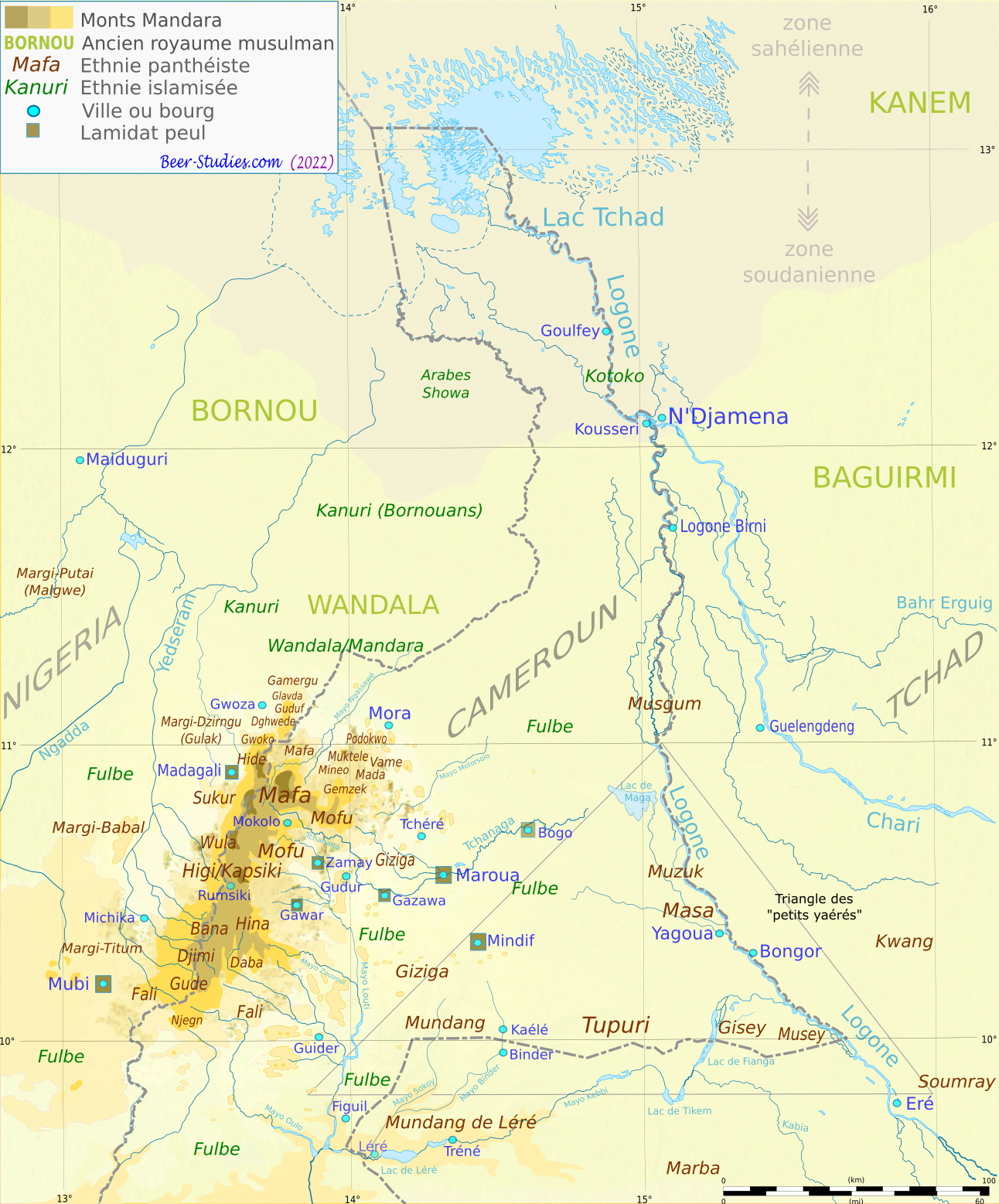Your search results [1 article]
African beer in the Chadian basin since the 11th century.
A 134-page, highly illustrated study of traditional African beers, the brewing ingredients and techniques, and the confrontation between the pantheistic ethnic groups of North Cameroon and the Islamic kingdoms (Bornou, Kanem, Wandala, Baguirmi, Caliphate of Sokoto, etc)..
This part of Africa has an eventful and documented history since the 11th century. This outstanding background enables us to trace a fairly complete history of traditional African brewing, freed from the colonial gaze and based on written documents and African testimonies (oral traditions). This history highlights a thousand-year-old confrontation between two antagonistic socio-political systems. The system of the Chadian basin ethnic groups is based on cereals, self-sufficient food production, flat social structures, and beer as a beverage of social cohesion, rituals and annual collective ceremonies. Conversely, the Islamised kingdoms, predatory by their very nature, are based on 'pagan' peoples enslavement, the trans-Saharan slave trade and centralised political powers.
This study explores the following issues :
- Why is beer brewed in the Chadian basin?
- The material base for brewing beer: cereals, tubers, pulses.
- Cereal beers: eleusine, millet, fonios, sorghums, rice, maize.
- Beers from tubers and starchy roots of the Chadian basin.
- Beers from pulses in Sudanese Africa.
- The beer-like beverages of the Chadian area.
- The famine fermented beverages in the Chadian basin.
- Sources of starch and brewing methods around Lake Chad.
- Socio-politics and brewing traditions in the Chadian basin.
- Protohistory, social complexity and emerging brewing traditions.
- Modern pantheistic societies and their brewing traditions.
- Beer and the predatory economics of Islamised African societies.
- The ban on fermented beverages is primarily aimed at rituals.
- The slave hunt and the geopolitics of the Chadian basin.
- Food production is provided by the "pagan" slaves.
- Muslim slave hunters but also beer drinkers.
- An ethnogenesis of slavery in the Chadian basin?
- Beer in the economics and religion of the Mandara Mountains.
- Mandara Mountains, haven and promised land of the "Highlanders".
- Beer among the Mafa in 1985-2000 (Müller-Kosack).
- The beer among the Mofu-Diamaré in 1968-1988 (Vincent, 1975).
- The beer of the twins among the Mofu, the Giziga and the Zulgo.
- Beer among the Kapsiki in 1971-1973 (van Beek).
- Beer among the Mada in 1956-58 (Guingnet).
- Beer among the Hidé (Xdi) in 1969-70 (Eguchi).
- The beer of the Margi in western Mandara, 1959-1987 (Vaughan).
- Beer in the “little yaérés Triangle”.
- Beer among the Tupuri 1950-2000 (Masseyeff & al., Garine).
- Beer among Muzey and Masa, 1962-63, 1958-59 à 2010 (Garine).
- Beer among the Duupa of the Poli massif, 1988-93 (Garine).
- Beer drunkenness and violent outbursts ?
- Migration of peoples, diffusion of plants and brewing techniques.
- see History of African beer in the chadian basin.
- download the pdf file of the complete study.
- see a 18 pictures gallery.



